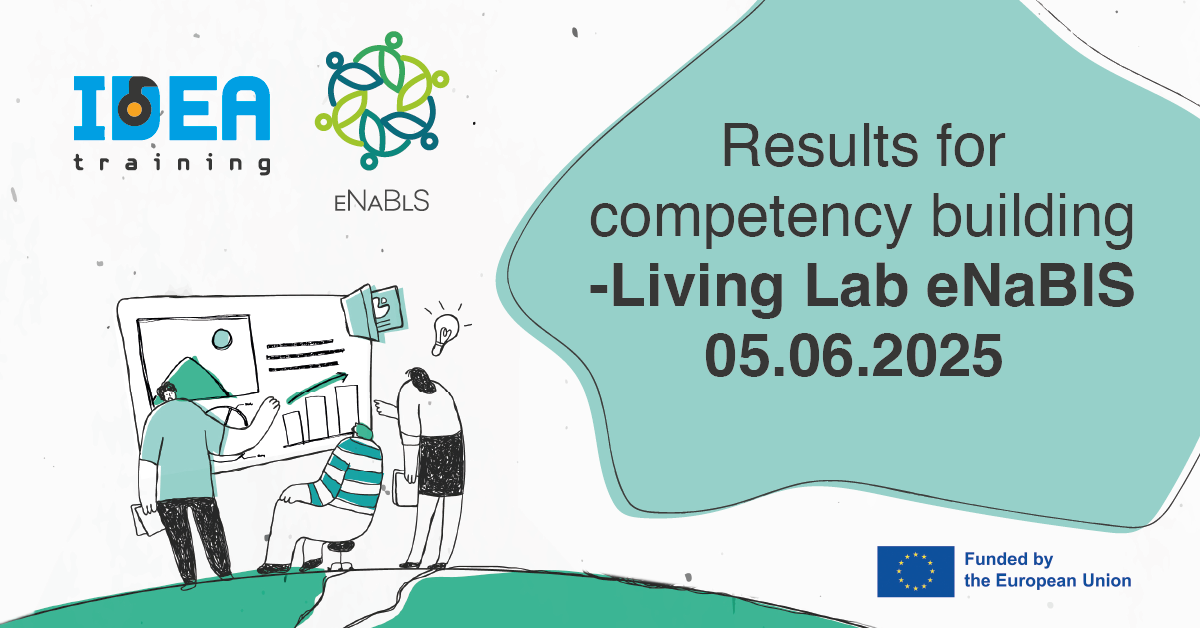
Words: Εlisavet Petridi and Tilemachos Kotronis
Proofread: Dora Psoma and Paschalis Valsamakis
Keywords: eNaBlS project, Living Labs, Nature Based Solutions (NBS), GreenComp Framework, Interdisciplinary Research, Transdisciplinary Research, Competences, Skills
In the framework of the eNaBlS project, the Greek Living Lab was organised, aiming to develop capacities around Nature-Based Solutions (NBS). The following is a summary of the relevant article, which describes the structure and methodology of the lab, as well as the main findings from the self-assessment questionnaire distributed to the participants.
Αbstract
The article explores the implementation and results of the Greek Living Lab, which took place on June 5, 2025, at the Technical Camber of Greece in Thessaloniki. The lab was organized in collaboration with the Institute of Bio-Economy and Agro-Technology of the Centre for Research and Technology (CERTH), in the framework of the eNaBlS project.
The aim of the action was to strengthen the competencies related to Nature-Based Solutions (NBS), through an interactive lab that combined theoretical presentations with participatory activities focused on the design of an urban water collection system. The main target group was engineers, but people from other sectors also participated, forming a diverse group of 30 participants.
After the final activity, participants were asked to answer a self-reflection questionnaire, which was designed by the IDEA Training team in collaboration with 3s Research & Consulting. Although it was distributed at the end, it was considered an integral part of the lab. The questionnaire was based on the GreenComp framework and assessed four core competencies through a Likert scale: promoting nature, critical thinking, future literacy and collective action.
Analysis of the responses showed moderate to high levels of perceived competency building, with particularly positive results for the competency Promoting Nature. Although no significant differences were found in relation to demographic characteristics, responses to the open-ended question highlighted the lab as a highly educational and transformative experience and emphasised the importance of integrating Nature-Based Solutions (NBS) into education programs.
Overall, the findings confirm the effectiveness of Living Labs as an inclusive strategy for cultivating sustainability competencies and interdisciplinary collaboration. This approach can be applied more broadly in educational and professional contexts.
For a detailed presentation of the action and its results, you can download the full article in PDF format here.
More information about the project: https://cordis.europa.eu/project/id/101135035 and eNaBlS Project Website
Follow for more updates on eNaBlS social media channels: LinkedIn, X, Facebook.
*Download the project brochure here
Project: Education and Nature-Based Solutions: enable society to bend the curve for biodiversity (eNaBlS)
Contacts: Dora Psoma
Client: Horizon Europe – Global Challenges – Research & Innovation Action (RIA)
Duration: 01/2024-12/2026








